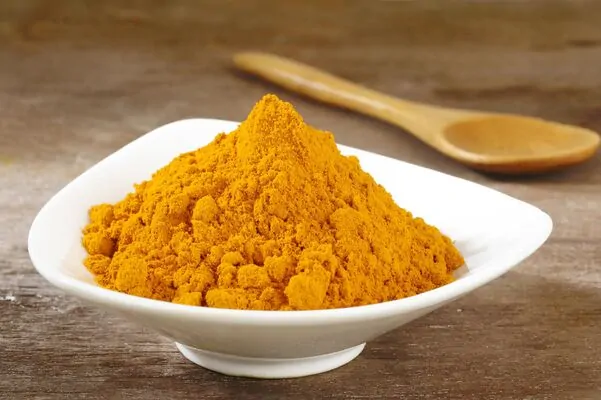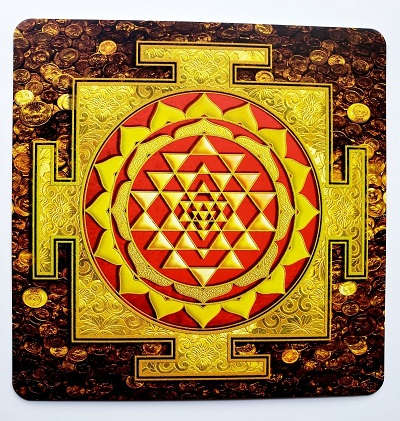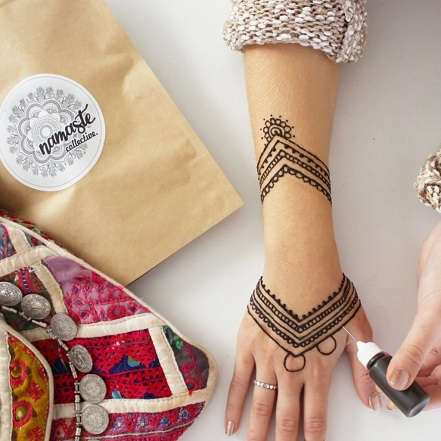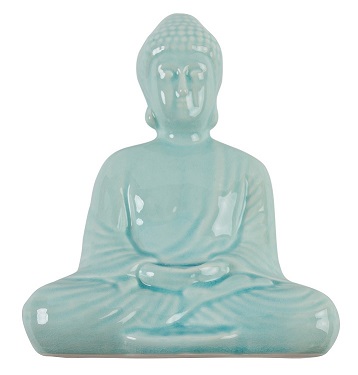Cart is empty
Yoga Lifestyle Marketplace
Turmeric: The Holy Root
05/31/2019

Turmeric is the queen root of ancient Indian medicine system - Ayurveda. It is so important that it is considered holy and praised as an offering to the gods. Turmeric contains a substance called curcumin. Curcumin is responsible for the yellow pigmentation of the turmeric. Most of the medicinal properties of turmeric are because of curcumin.
Following are few of the many incredible benefits that Turmeric offers:• Turmeric produces an anti-inflammatory effect by naturally reducing the inflammation receptivity.
• According to the recent researches, it is as strong an anti-oxidant as Vitamin C or E.
• Turmeric intake significantly decreases several harmful substances in the brain region, which leads to remarkable anti-aging effects.
• Turmeric, loaded with anti-inflammatory properties, also regulates the immune responses. This is especially applicable for autoimmune diseases. It is a wonder herb for arthritis, esp. rheumatism. The best thing about turmeric is that it is preventive in action.
• Turmeric has proven to be extremely effective in managing fat metabolism in the body. Diabetic patients tend to suffer from fatty liver disease and other liver disorders. Turmeric effectively prevents excess fat accumulation and detoxifies the liver. It is also very effective in the prevention of diabetic neuropathy!
RAW is the Real Good!
Nowadays there are many Turmeric based health supplements available on the market. Most of them are in the capsule form as it is easier to use them. Also, it is said that these capsules contain extracted curcumin, instead of the whole turmeric powder. In some cases, they are also fortified with an extra amount of curcumin to make them more effective.
However, the natural and most effective form of Turmeric is the powder form. According to Ayurveda, the whole is actually the best form as compared to an artificial extract of a specific chemical ingredient, for example, curcumin. The unique natural combination of all chemical compounds present in any herb is supposed to be the healthiest and the most easily digestible. Curcumin, present in turmeric, is known for its excellent anti-inflammatory, antioxidant properties. However, it has very low bioavailability. Yet, it is believed that in the natural combination with other chemicals of turmeric, its bioavailability is significantly increased. Therefore, turmeric as a whole exhibits a much profound effect on the body.
Raw is Versatile!
The raw powder can be used in multiple ways. It can be used in cooking or for medicinal oral consumption. It can be used for external application as well.
Raw Vs Roasted
According to Ayurveda, turmeric roasted in Ghee (Indian butter) is considered to be easier to digest and assimilate. Ideally, turmeric should not be consumed raw, which is not possible in the case of capsules. Also roasted turmeric has a longer bioactive shelf life as compared to the raw powder.
How to roast Turmeric
1 tsp Ghee is appropriate for roasting 100 gm of turmeric. In case Ghee (Indian butter) is not available, you can use any cooking oil, preferably coconut oil/ Olive oil. Avoid using mustard oil for roasting if you intend to consume roasted turmeric with milk.
Place a pan on low flame and put 1 tsp Ghee or Indian butter.
Add 100 gm of raw turmeric powder before the butter melts completely. This will help prevent the turmeric powder from burning.
Roast the powder at low flame by stirring constantly, till it turns dark yellow in colour. Stirring is important to prevent the powder from burning.
Roasted turmeric has a very pleasant and a distinct aroma. It is a benchmark to decide whether the turmeric is roasted properly or not. One has to learn this through experience.
If you are a newbie to the process, use a little amount of turmeric powder as a sample for early experiments. This is important as turmeric powder burns at a very fast rate, even on moderate flames.
Cooking and Oral Intake
• It can be used as a tempering in almost all salty dishes, to add a spicy flavour to their taste!
• Roasted turmeric; mixed with a hint of asafoetida, salt, sugar and lemon juice, makes a delicious condiment. It can be used to add taste to plain rice.
• Plainly roasted turmeric mixed with milk is a traditional Indian wound healing formula.
• 1 tsp of Roasted turmeric, mixed with ginger juice is a very good remedy for blood purification.
• 1 tsp of Roasted turmeric, mixed with jaggery, is a very good remedy for a chronic cough.
External Application
• Turmeric powder; mixed with gram powder, milk cream, and water, serves as an excellent face mask. It helps to remove blemishes, wrinkles, scars, and pimples.
• Turmeric powder mixed with lemon juice helps to relieve the stickiness of the oily skin.
• Turmeric powder can be applied to the open wounds as an antiseptic powder. It accelerates healing and prevents swelling and infection.
• Turmeric is an excellent antiseptic, anti-fungal, anti-bacterial and skin tone enhancing agent. Mixed with medicated oils, it can be used to massage the body. For the same reason, traditionally couple are anointed with turmeric before the wedding ceremony.
Turmeric is an excellent ingredient for many home remedies. However, according to Ayurveda, prakrati or the body constitution of each individual is distinct. It is not necessary that one remedy will suit all. Self-medication should always be avoided. Therefore, please consult a certified professional before considering turmeric for medicinal purposes.
Learn more about Turmeric by visiting this link
Dr. Kanika Verma
BAMS - Bachelor of Ayurvedic Medicine and Surgery
PGDHHM - Post Graduate Diploma in Hospital and Healthcare Management
Recent Blogs
- Yoga Lifestyle
- Ayurveda Lifestyle
- Meditation
- Rituals
- Basics of 7 Chakras
- Self-Care for Happy Healthy Adrenals Using Essential Oils
- Effective Stress and Anxiety Treatment Using Essential Oils & Aromatherapy
- How Women Can Ease Menstruation Cycle Pain Using Essential Oils
- Learn How To Open Up Blocked Chakras Using Essential Oils






